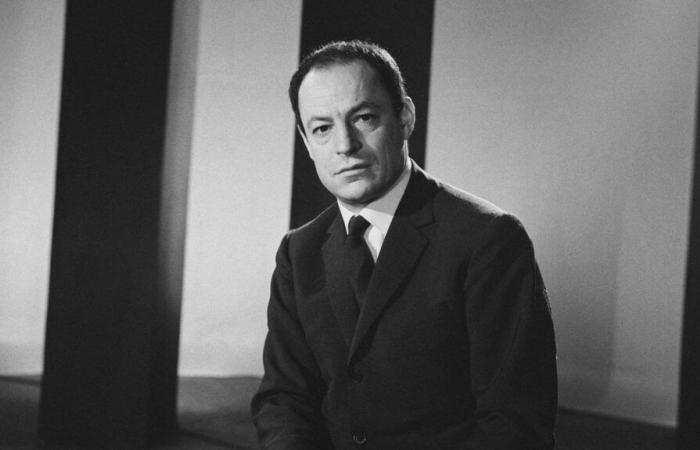If the name of Charles Dumont is invariably linked to that of Edith Piaf, he also had a personal career as a singer and composer for other artists, and even film scores. Return to the journey of one of the oldest French singer-songwriters, who died on the night of November 17 to 18 in Paris at the age of 95.
Charles Dumont was born in Cahors on March 26, 1929. His father, a communist sympathizer, worked in aeronautics in Toulouse, and young Charles went to study in the pink city. Passionate about music, he nevertheless fails to assimilate the piano, nor music theory, nor musical theory. It was while listening to Louis Armstrong that he discovered his vocation for the trumpet. At the end of the war, he created his first amateur jazz orchestra at the age of 15, then he moved to Paris, after obtaining a medal at the Toulouse Conservatory.
But following an apparently benign removal of his tonsils, he found himself prohibited from playing the trumpet, which caused him to hemorrhage and be hospitalized. It was thanks to the lessons of the organist Maître Paul-Sylva Hérard, head of the Great Organs of the Saint-Ambroise church, that young Charles learned to master the keyboard and harmony.
He then decides to compose songs. Alongside small jobs, he signs pieces, sometimes under pseudonyms, for Dalida, Gloria Lasso, Luis Mariano, Annie Cordy and Tino Rossi.
On November 10, 1960, Edith Piaf recorded No, I don't regret anythingcomposed in 1956 by Charles Dumont and written by the lyricist Michel Vaucaire. The meeting with the great lady of French song will be decisive. He signed around thirty other of his songs for her, Ball fun has My God passing through The Lovers that Piaf and Dumont wrote and sang jointly in 1962.
In 1963, he composed for her I rely on youwith words by Jacques Brel; the singer died before being able to record it. Charles Dumont recorded it in 1964. He included it in 2007, in the show Piaf, I love youperformed at the Olympia by singer Marie Orlandi.
After the death of Edith Piaf, Charles Dumont composed music for films and television series. He thus sets to music The Adventures of Michel Vaillanta serial directed by Charles Bretoneiche in 1967, and two films by Jacques Tati: Traffic in 1971, and Parade in 1974. His musical style fits perfectly with the zany and offbeat universe of the creator of Monsieur Hulot.
We also owe him the songs Our love is on strike performed by Bourvil, The owner in the repertoire of Juliette Gréco, and The Wall that Barbara Streisand sang in French and also in English under the title I’ve Been Here.
In 1967, his meeting with Sophie Makhno, lyricist of Anne Sylvestre and Barbara among others, pushed him to launch himself onto the stage as a performer, as Edith Piaf had done five years previously.
Charles Dumont thus begins a more personal career and himself performs his compositions where love and women hold a special place: his titles A song (1976) et Impossible loves (1978) are gold records. Among his other known songs in the same theme, we remember You the married woman et Your Cigarette after Love.
With the Charles Cros Academy Prize for the album A woman in 1973 then the Henry-Jousselin prize in 1987 for all of his songs, or the Grand Prix de la Sacem received at the Olympia for the best creator in 2013, the singer acquired a certain esteem in French song. A street bears his name in the Normandy town of La Ferrière-sur-Risle (Your).
And the last two decades have seen him still often on stage. Whether for concerts at the Olympia, at Bobino, at the Casino de Paris, or even in Tokyo in 2008, Edinburgh in 2012, New York in 2013, his fifty years of career at the Bataclan in 2004, or even his participation in the tour Tender age and wooden heads (fifth season) in 2010, Charles Dumont remained active until recently. His latest album Soul mate dates from 2019, and the same year he gave an exceptional recital on the first floor of the Eiffel Tower, when he was 90 years old.
With nearly thirty albums recorded between 1964 and 2019, and his compositions before 1960, Charles Dumont has accompanied the French public for more than sixty years. He was one of the last artists of his generation.






